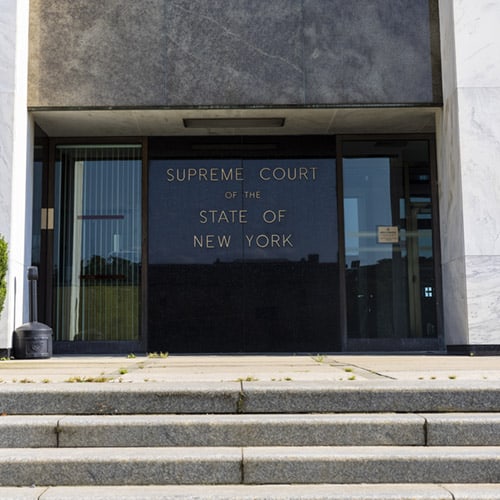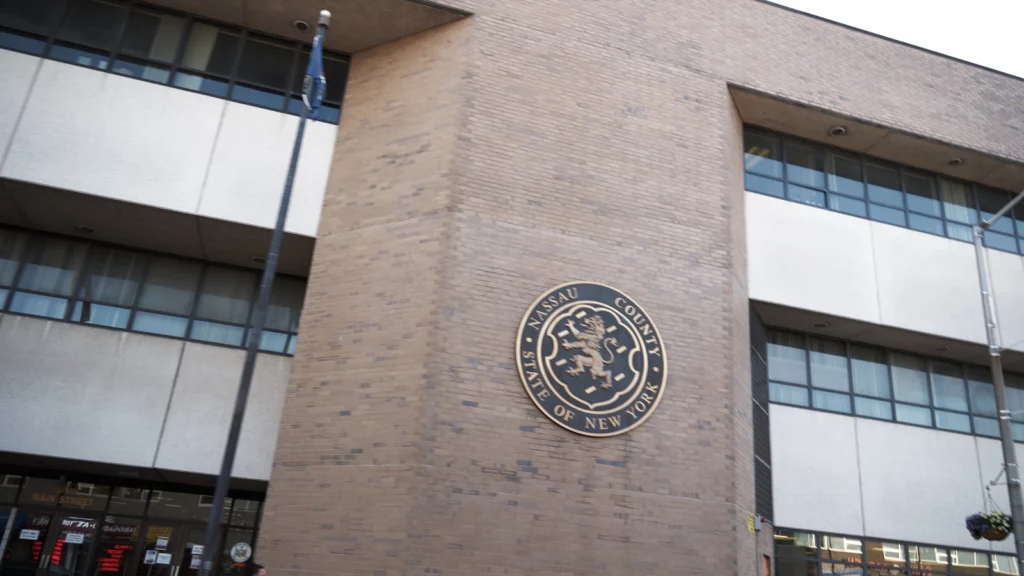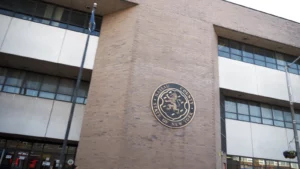Evict a Family Member
ACTION IN EJECTMENT
Evicting a Family Member?
Unfortunately, as eviction lawyers, we often see homeowners who need to evict their family members or guests when they become abusive, unruly, or refuse to move out of the house. And the laws governing the eviction of a family member or guests in New York State can be complicated. Often you cannot evict a family member through the usual legal process for evictions. You must bring an Action in Ejectment in State Supreme Court.
An Action in ejectment is the appropriate legal remedy to remove a family member who has no tenancy and doesn’t pay rent but was occupying the property due to a familial relationship. An example would be an adult child, who grew up in the home, and is still living there and refuses to leave.
If, however your adult family member has an obligation to pay rent or other household bills under an enforceable rental agreement, then he or she can be treated just like any other tenant and evicted in either a nonpayment proceeding or a hold-over proceeding. The mere obligation to pay, even if a payment was never made, creates a tenancy.
Additionally, an adult child who has lived elsewhere previously, but moved back in with their parents as a result of not being able to make it on their own, can be evicted through a regular (faster and cheaper) eviction proceeding. So as you can see, whether an action in ejectment or a regular eviction proceeding in district court is the appropriate legal action is not an easy question to answer. But if you give us a call, we can help to explain the process, and we’ll speak with you for free.
Call or Text
Evicting a family member is a difficult process.
But we make it easier. Give us a call or text us for a free legal consultation, and learn about the process and your rights.
📞 (631) 888-6989💬 Text Us NowWhat Type of Family Member Can You NOT Evict?
You cannot evict your minor children. In New York State, parents have a legal duty to support their children until they are 21 years old. That obligation can end when the child turns 18 if he or she is unruly or abusive and does not follow common household rules. Once your child turns 21, they are considered an adult, and you can then have them legally removed from your house if they refuse to leave on their own. This requires an action in ejectment.
You cannot evict your husband or wife (spouse). You must use Family Court or Supreme Court and a family lawyer for a remedy.
You cannot evict a domestic partner if you have minor children in common who reside with you. If for some reason you need to evict your boyfriend or girlfriend whom you have minor children with from your house, then contact a family lawyer for additional assistance in family court.
Questions to ask to determine if you can evict a family member
These are just some of the questions we will ask you in order to determine the appropriate legal remedy to remove your family member from your house.
- Are they an adult?
- If you’re evicting your child, they must be over the age of 18 (or 21 depending on the circumstances). If they’ve lived in the family home their whole life and never lived elsewhere, an action in ejectment may be the necessary remedy. However, if they moved out and recently moved back in, you may be able to evict them in a faster, more cost-effective manner such as with a holdover or nonpayment proceeding, depending on the circumstances. Call us for a free consultation to learn more.
- Are they paying or have they ever paid rent?
- If your family member has made rent payments, they may be considered a tenant, and there may be more efficient ways to evict them other than in an action in ejectment.
- Do they have a lease?
- If they have a lease with you, they will be considered a tenant, and an action in ejectment may not be needed.
- Do you have children in common with this family member (e.g. is it a boyfriend or girlfriend and you have minor children in common who also live with you?)
- If there are minor children involved, then you must involve family court and custody issues first.
TYPES OF EVICTION
PROCEEDINGS:
THE COURTHOUSES FOR
ACTIONS IN EJECTMENT:
RELATED ARTICLES:
Other FAQs about Evicting a Family Member
Can I evict my son?
Sometimes adult children refuse to leave home, and sometimes they unfortunately develop behavioral or substance abuse problems or become violent. If you have made the difficult decision to evict your adult child, it would be possible. But it depends on the circumstances under which he came to live there.
If he’s lived there his whole life, then you cannot use the eviction courts to evict him. You have to bring an action in ejectment in New York State Supreme Court instead of an eviction proceeding in district court.
But if your son has not lived there his entire life, for example, if he moved out, but recently moved back in as an adult after living someplace else, then he can most likely be evicted either as a tenant or a licensee, depending on the circumstances.
Can I evict a violent family member?
It depends on their status. Whether or not a family member is violent, you will only be able to remove them if they qualify under one of the categories above. For example, if your spouse is violent, you still cannot evict her through an eviction proceeding or action in ejectment. You must report them to the police or contact a family lawyer to find another legal remedy in either criminal or family court.
Can I evict my girlfriend?
Yes, provided that there are no children in common, that the girlfriend shares the house completely (doesn’t have her own apartment) and that the girlfriend didn’t make any mortgage payments. Usually, a girlfriend is considered a licensee. And a licensee can be removed after serving a 10-day notice and then starting the eviction process in court. You can learn more about how to evict a licensee on our holdover evictions page.
What if the family member was paying rent and then stopped?
If a family member agreed to the payment of rent and has exclusive occupancy in some part of the house, like a basement apartment, or accessory apartment somewhere on the rental property, then they can be evicted in either a nonpayment proceeding or a holdover proceeding. But if they share the entire house and have no separate apartment, then you may not be able to evict them if they pay rent.
What if the family member is my cousin?
Assuming you do not have a legal obligation to support them, then the question becomes, have they ever paid rent? Or did you allow them to stay with you briefly as a guest, and now they refuse to leave (a licensee or unwanted guest)? In either scenario, a nonpayment proceeding or holdover proceeding in district court may be the appropriate remedy. You can give us a call and we’ll help you to decide.
Would you ever need to file an action in ejectment against a non-family member?
Yes. certain situations may arise where a former tenant must now be evicted through an action in ejectment. These are rare, and your experienced landlord-tenant attorney will know what type of proceeding is right for you.
How long does an action in ejectment take to evict a family member?
Each individual action in ejectment is a unique case with unique issues. That being said, the average time period remains the same. an action in ejectment in state supreme court will usually come to a resolution within three to six months. It unfortunately is a longer and more complicated process than just evicting a residential tenant.

The Procedure for Evicting a Family Member with No Lease
The first step is to determine the relationship and type of residency and ensure that an action in ejectment is the correct legal action to evict your family member.
The reason it’s so important to determine the relationship and familial status is because this is what will determine the court venue and eviction process that must be initiated to evict your family member.
New York State law mandates that you must bring an action in ejectment in either Nassau County or Suffolk County Supreme Court to evict certain family members in certain situations. All other matters can be brought as either a nonpayment proceeding or a hold-over proceeding in district court or in a justice court.
If you or your lawyer makes a mistake and files the wrong type of proceeding in the wrong court, then your action will be dismissed, and you will lose money and time. And worse, your family member will get to remain living in your home even longer. This is why it’s so important to find a legal professional who is familiar with actions in ejectment, which is a very specialized area of landlord-tenant law.
Once you’ve determined this, then you are required to serve your family member with the predicate eviction notice, informing them that their license to reside at the premises is terminated (if applicable), that you are recovering possession of the property, that they must leave by a specific date, and giving them a certain amount of time to move out.

View Our Nassau County Supreme Court Page
An action in ejectment to evict a family member must be filed in New York State Supreme Court.
View our Suffolk County Supreme Court page here.
Actions in ejectment must be filed in Nassau County Supreme Court or Suffolk County Supreme Court. A notice of petition and petition must be drafted which contain critical details about the property and the parties, and it must request the specific relief you are seeking. Then you must file your notice of petition and petition, purchase an index number and RJI, and serve your petition on the family member you wish to evict.
Litigating in Nassau County or Suffolk County Supreme Court can be an arduous process with several appearances. This is why we’re one of the only law firms that charge one flat rate per case. This way you know what to expect and how much the entire process will cost you upfront.
Once you receive your order of ejectment, which could take several months, you have to bring it to law enforcement, which in Nassau County and Suffolk County would be the sheriff’s office. There are some additional steps involved, which an experienced eviction lawyer will know and will walk you through.
The Conclusion of the Ejectment Process
Once the county sheriff is involved, a deputy will come to the property and physically remove your family member from your premises.
Read More FAQs about
Evicting a Family Member
And view our answers to their questions.
Call or Text
Have Questions? Speak with Us For Free.
We offer free consultations via phone, text or chat. Don't wonder about what your rights are or what your next move is. Call and find out.
📞 (631) 888-6989💬 Text Us NowMore About The Long Island Eviction Process
What’s the Penalty for Renting an Illegal Apartment?
Renting an illegal apartment can lead to serious consequences, but it may...
Read MoreHow Long Does it Take to Evict a Tenant in Nassau County or Suffolk County, NY?
The Evictions Timeframe Varies Depending on on Several Factors There is no...
Read More10 Day Notice to Quit
There are many types of notices that may be required in New...
Read More





